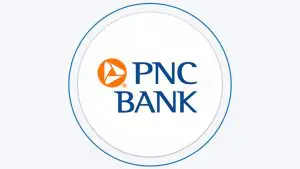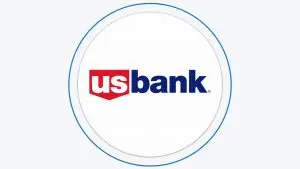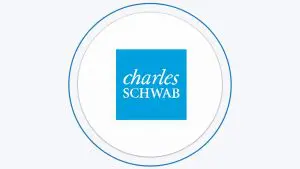Table Of Content
Since 2020, the rate of inflation has appeared to skyrocket. Many consumers are aware that prices of everyday items, consumer goods and fuel have increased dramatically, but the high rate of inflation has impacted prices throughout the economy.
Over the last few years inflation has been as high as 9.1%, with no months dropping to the previous low from April 2020, when the rate was just 0.6%.
While most of us are aware of how this rate of high inflation has impacted our household costs, you may be wondering, are banks happy with high inflation? Here we’ll delve into this topic in more detail.
Why Banks Are Happy with High Inflation?
There are a number of reasons why banks may be happy with higher inflation. Firstly, although they are paying out higher rates on deposits, they can charge far more for lending products. This is the fundamental area of where banks make money, but during times of high inflation, there is a great potential for banks to really profit.
Additionally, during periods of high inflation, there is greater demand for credit. While consumers may have previously relied on their own income to cover the cost of purchases, when financial times are tougher, those same consumers may need to use credit to cover an essential larger purchase. Of course, where demand is higher, banks can charge more.
Banks can also benefit by offering fixed interest rate products. Since the rate of inflation may not keep rising forever (hopefully), banks can profit by allowing customers to take out a fixed-rate loan or mortgage deal. While it may not be good idea to take a loan in such a case – it may be necessary for these customers. Then, they will be paying that high rate, regardless of whether the interest rates drop in future months.
Sign Up for
Our Newsletter
Why Banks Should Worry About High Inflation
Of course, it is not all good news for banks, as high inflation can also create some potential worries for our financial institutions.
-
The Effects on Real Estate
High inflation has a detrimental impact on the real estate market. The higher interest rates can put mortgage customers under additional financial strain, which may lead to missed mortgage payments and defaults. In a worst case scenario, banks may need to delete money from consumer debt, which would be written off as a loss for the bank.
Additionally, the higher interest rates tend to dissuade potential new customers from taking on a mortgage, which means that banks will have fewer customers to profit from.
-
The Effect on Consumers
Consumer habits can also be a potential worry for banks. When inflation is high, savvy consumers may be more likely to shy away from traditional deposit accounts and put their money in more inflation-proof investments, such as precious metals. This can lead to a run on cash, which may mean that banks have less money to lend to their credit-seeking customers and even worse – to operate ongoing banking needs.
Additionally, many consumers will take a more cautious financial approach during times of high inflation. They may be more likely to wait on making significant purchases, and if the predictions are for high rates of inflation setting in for the future, they may be more likely to pay down credit cards, and the banks won’t be able to earn interest on outstanding balances.
Lastly, and this is the most important risk, the higher interest rates may push consumers to default, and this is a high risk scenario for banks. The more consumers on default without being able to pay back their debt -the more risk for the bank's stability.

-
The Effect on Businesses
Of course, the potential risk for banks is not limited to personal customers, as there is a potential for worry from business customers.
High inflation also affects businesses, who also need to pay higher energy and other overhead costs, in addition to needing to pay more for raw materials or components. This can lead to a higher risk of businesses folding or defaulting.
If more of the bank’s business customers close their doors permanently, they may struggle to recoup debts and be forced to write off business loans.
-
Heralding Recession
Higher interest rates can also herald the onset of a recession. Recessions slow all activity within the economy, and since banks are essentially a middleman in all transactions within the economy, their profits tend to decline.
For example, in the last major recessions, the situation for banks got so bad that a number required a government bail out.
How Consumers Cam Keep Their Money Safe ?
Fortunately, there are some things that you can do to understand the effect of high inflation on banks and how this will impact you. One of the best ways to stay informed is to track bank reports. Most banks produce reports annually, but they may also issue updates on a monthly or quarterly basis.
Try reading through the bank reports to see if you can notice trends and patterns. This will also help you to understand which banks are more exposed to risks from the higher inflation. You can then act accordingly, only taking out products with banks that do not present a higher risk for investors.
Of course, the key to navigating high inflation is diversification. While banks may be offering higher rates on deposit products, it may be a good idea to ensure that your investment fund is diversified, with more robust commodities and more inflation-proof products, which can help you to maximize your returns and offset the effects of high inflation.
Summary: Banks May Be Happy, But Only For The Short Run
While high inflation may be good for banks in the short term, allowing them to generate higher profits from new and existing customers, in the long term, it can be just as bad for banks as it is for the rest of the economy.
Periods of high inflation are unsustainable for the economy. High inflation places pressure on individuals, households and businesses, who can all struggle to keep up with the rising costs of almost every item. This can create problems for banks who may experience a higher incidence of late payments, defaults and even bankruptcies.
So, while banks may be able to profit for a little while, like everyone else in the economy, they will be looking at the FED to take measures to reduce inflation and bring costs and interest rates back under control.
Sign Up for
Our Newsletter






















